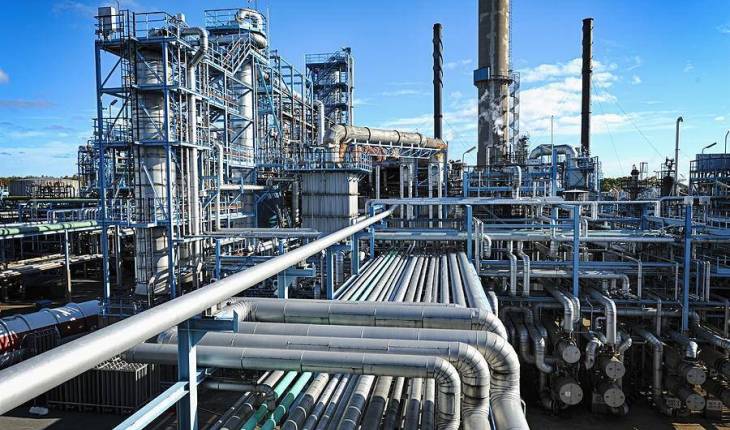- Refineries Get N162bn Crude Oil in Eight Months
Three of the four refineries in Nigeria have continued to receive high volumes of crude oil valued at billions of naira every month since the beginning of this year, despite their abysmal performance either individually or collectively.
Findings on Friday showed that although the three facilities got no crude delivery in the fourth quarter of 2015, they started receiving high quantity of crude oil in January 2016.
The refineries are the Kaduna Refining and Petrochemical Company in Kaduna State; Port Harcourt Refining Company in Rivers State; and Warri Refining and Petrochemical Company in Delta State.
The latest financial and operations report of the Nigerian National Petroleum Corporation for September 2016, which was obtained by our correspondent in Abuja on Friday, showed that between January and August, the country’s refineries received a total crude volume of 16.468 million barrels valued at N162.6bn.
Despite receiving such huge volumes of crude during the period, the facilities still performed below standard as the corporation admitted that the refineries’ combined performance was abysmal.
Analysis showed that the largest crude delivery in volumes to the refineries during the eight-month review period was done in August 2016, as the facilities got 3.282 million barrels of crude oil valued at N48.901bn.
On the other hand, the lowest crude delivery to the facilities was done in January 2016, as the combined crude oil receipt for that month was 502,450 barrels worth N2.726bn.
In one of its comments on the performance of the refineries, the NNPC said, “For the month of September 2016, the three refineries produced 139,724 metric tonnes of finished petroleum products and 74,885MT of intermediate products out of 252,897MT of crude processed at a combined capacity utilisation of 13.89, compared to 19.09 per cent combined capacity utilisation achieved in the month of August 2016.
“The abysmal performance was due to crude pipeline vandalism in the Niger Delta region and the three refineries continue to operate at minimal capacity.”
Industry stakeholders, observers and experts on several occasions had called for the privatisation, concession or outright sale of the Nigeria’s refineries.
Last week, the Minister of State for Petroleum Resources, Dr. Ibe Kachikwu, raised the alarm that the refineries could end up as scrap in 2019 once the Africa’s richest man, Alhaji Aliko Dangote, began processing crude oil at his refinery in Lagos.
Kachikwu, who spoke at the stakeholders’ consultative forum in Abuja, said, “Refineries will have to work; it is really not an option anymore. And not only should it work, it has to work very quickly. The reality is that if we do not privatise and we do not support concession, which is not what we are doing, then we have a responsibility to find private capital to get them to where they should be.
“This is because if we do not get them to work, in 2019, I can assure you that if Dangote system works well, we would have scrap; we won’t have refineries because by then, it would be too late to do anything.”
Stakeholders in the oil and gas sector had stated in the draft National Oil Policy 2016 that the refining capacity of Nigeria’s refineries was one of the smallest in the world, putting it at about 14 per cent against a global average capacity utilisation of 90 per cent.
In the draft document, which was obtained by our correspondent from the Ministry of Petroleum Resources, the stakeholders said, “The midstream consists of three refineries, petroleum product storage depots, onshore oil and gas pipelines, and four terminals (all government-owned subsidiaries of the NNPC).
“Despite being one of the leading crude oil producing nations in the world, Nigeria’s refining capacity is one of the smallest. The capacity utilisation has fallen to just 14 per cent in 2014, against a global average capacity utilisation of 90 per cent. A strong commercially viable and significant refining sector is an essential part of the Nigerian Petroleum Policy.”
They noted that on a per capita basis, Nigerian refining capacity (theoretical maximum capacity, which was far higher than actual current operational capacity) was one of the lowest, even among other African countries.
Outlining the per capita performances of some refineries in Africa, the stakeholders stated that Libya had 6.17 barrels per day/capita; Algeria, 1.37 bpsd/capita; South Africa, 1.11 bpsd/capita; Egypt, 0.96 bpsd/capita; and Nigeria, 0.3 bpsd/capita.

 Naira3 weeks ago
Naira3 weeks ago
 News4 weeks ago
News4 weeks ago
 Naira4 weeks ago
Naira4 weeks ago
 Naira3 weeks ago
Naira3 weeks ago
 Jobs4 weeks ago
Jobs4 weeks ago
 Travel3 weeks ago
Travel3 weeks ago
 Naira3 weeks ago
Naira3 weeks ago
 Investment4 weeks ago
Investment4 weeks ago






























